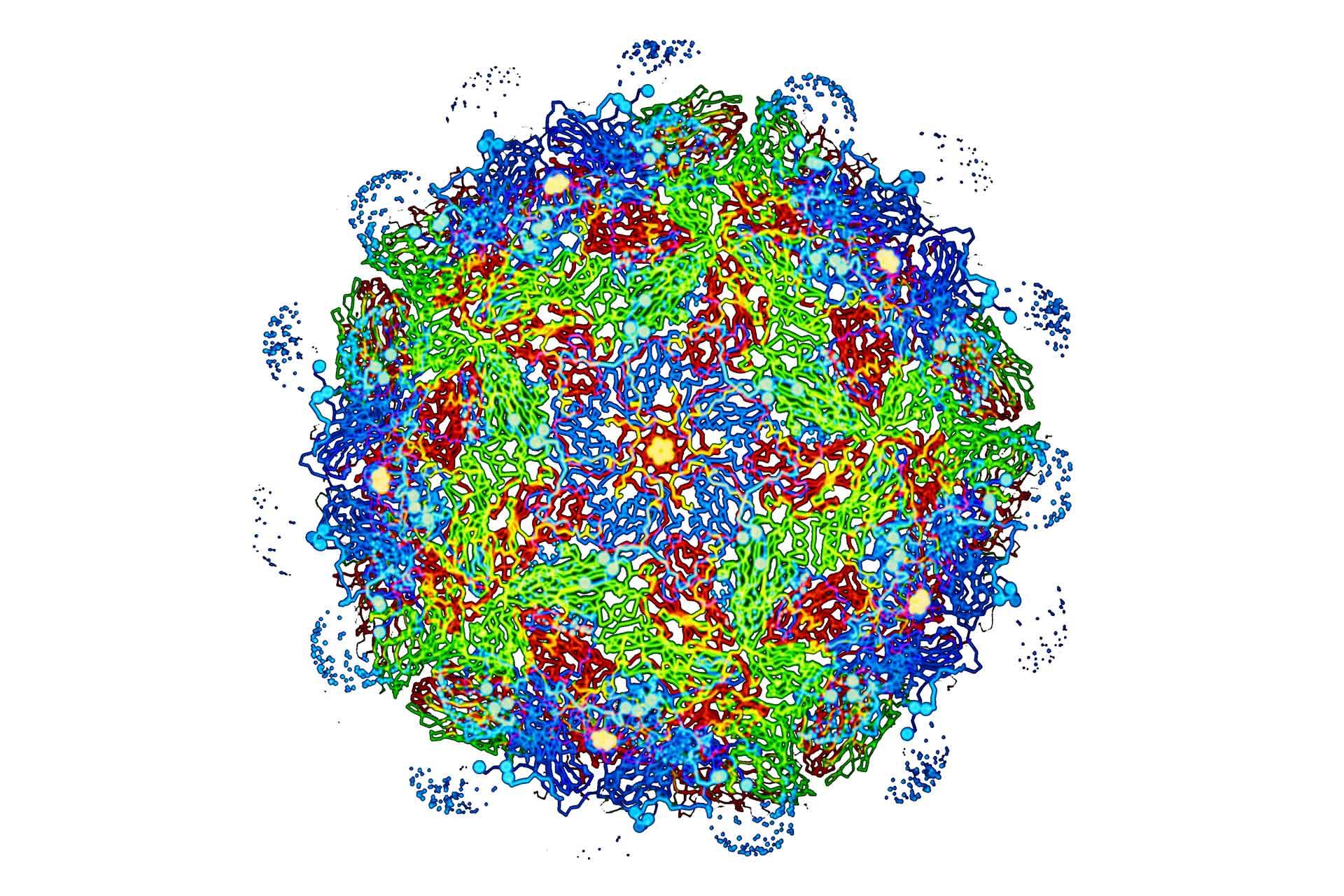Researchers at The Pirbright Institute have shown that when drugs are used to inhibit the cellular protein, hsp90, foot-and-mouth disease virus (FMDV) production is reduced. Hsp90 is a protein used by cells to fold other proteins correctly and it was shown to be required by FMDV to form the outer shell of the virus which protects the viral genome. This provides new insights into how FMDV replicates during infection, and also demonstrates the potential for hsp90 as a target for future FMD antiviral treatments.
The FMDV outer shell, known as the capsid, is made from 60 repeats of a subunit, which go through multiple stages of assembly to form the final structure that encases the FMDV genetic material. In their paper published in the Journal of Virology, Pirbright scientists developed a cell-free system that showed hsp90 is required for processing the subunit in the early stages of capsid assembly.
Researchers from Pirbright’s Picornavirus Molecular Biology group demonstrated two drugs, which inhibit hsp90 by locking it into an inactive form, prevented the FMDV subunit from being processed, halting the formation of the capsid. Use of these drugs resulted in a ten-fold reduction in virus levels, showing that hsp90 plays a vital role in capsid assembly, and without it FMDV is unable to replicate effectively.
The findings advance knowledge about how the virus replicates and also highlight hsp90 as a target for future antivirals, which could be used to treat animals that have already been infected with FMDV. Although the drugs used in the current study are unsuitable for animal treatment, improved hsp90 inhibitors could provide an additional tool to aid in the fight against FMD.
This research was funded by the Biotechnology and Biological Sciences Research Council (BBSRC), grant numbers BBS/E/I/00001411 and BBS/E/I/00001577.
